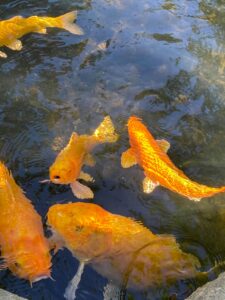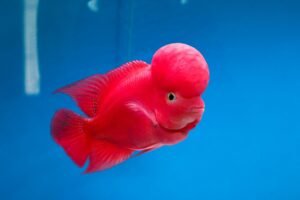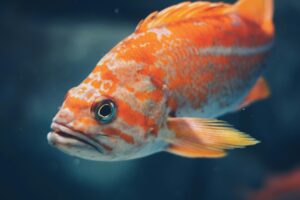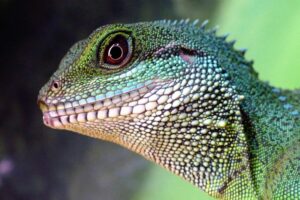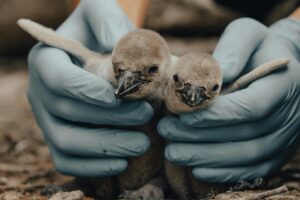The aquatic realm teems with breathtaking splendor, showcased by species such as the vivid Mandarinfish and the regal Arowana. Each species mentioned is a testament to nature's artistry, with their remarkable features placing them among the most exquisite fish to grace our waters. These aquatic marvels do more than just brighten their habitats; they act as vital components of their ecosystems, playing a key role in the ecological equilibrium and vitality of their marine homes.Their allure transcends mere aesthetics; these fish are pivotal to the fabric of their ecosystems. Their presence helps sustain the delicate balance necessary for aquatic health. The conservation of these magnificent beings and their environments is crucial, ensuring that the splendor of our natural world endures for future admirers.
The variety of fish inhabiting freshwater is truly remarkable, encompassing a spectrum from the fierce piranha to the tranquil carp. Each type of fish fulfills a distinct role within its habitat, which is vital for maintaining the equilibrium and vigor of freshwater realms. The encroachment of human endeavors poses risks to numerous species, making the preservation of these aquatic communities through conservation measures imperative. It is of utmost importance to comprehend and safeguard these extraordinary creatures to secure the continuity of freshwater biological diversity.
The planet's most uncommon fish are a testament to nature's diversity, facing the brink of extinction. These aquatic marvels range from the diminutive pupfish, thriving in secluded caves, to the formidable sea bass, navigating the vast coastal realms. Their existence is pivotal for the equilibrium of marine life. To prevent their vanishing, concerted conservation actions, reinforced fishing laws, and safeguarding of habitats are imperative. The continuity of these extraordinary species hinges on our present-day commitment to their conservation.
The allure of exotic fish captivates many, offering a slice of aquatic splendor right in your living room. These finned marvels, ranging from the flamboyant betta to the regal arowana, and the effervescent discus, bring a kaleidoscope of color to any aquarium. Yet, their beauty is matched by their need for meticulous care.Each species of exotic fish is a unique individual with distinct requirements. The size of their tank, the specifics of their diet, and the precise water conditions they thrive in are all critical factors to consider. It's not just about aesthetics; it's about creating a habitat that mirrors their natural environment as closely as possible.
Owning an exotic pet can be a rewarding experience, but it also comes with its own set of challenges. From hedgehogs to parrots and everything in between, the key to success is understanding each animal’s specific needs and ensuring they receive the proper care and attention. With the right preparation and commitment, exotic pets can bring a unique and enriching experience to your home.Before adopting any exotic pet, make sure to research the specific care requirements and legal considerations to ensure that both you and your new companion are set up for a happy life together.
Essential Care for Exotic Pets: Housing, Feeding, Health, and Well-Being of Your Exotic Animal", provides a comprehensive guide for owners of exotic animals. It covers the critical aspects of care, including creating appropriate housing that mimics their natural habitat, providing a proper diet tailored to the pet's unique nutritional needs, and ensuring their health and well-being through regular veterinary care and hygiene practices. The article emphasizes the importance of understanding and meeting the specific requirements of exotic pets to ensure their long-term health and happiness.
Choosing an exotic pet requires careful thought and preparation. Exotic animals often have unique needs, such as specific living environments, dietary requirements, and specialized veterinary care. Potential owners should consider factors like the animal's lifespan, space requirements, and local laws before adopting. It's important to ensure that you can meet the time and financial commitments of caring for an exotic pet. Proper research into the pet’s specific needs is essential to provide a healthy and enriching life for the animal while also ensuring that it fits well into your home and lifestyle
Owning an exotic pet can be an exciting and unique experience, offering the chance to bond with unusual animals like reptiles, birds, or amphibians. These pets can be low-maintenance, allergy-friendly, and fascinating, but they also come with challenges. Exotic pets often require specialized care, such as specific habitats, diets, and veterinary attention, which can make them expensive to care for. Legal and ethical considerations are also important, as some species may be regulated or require special permits. Understanding the pros and cons is key to making an informed decision about exotic pet ownership.
This article explores the unique reproductive systems of exotic animals, such as external fertilization in amphibians and internal fertilization in reptiles, birds, and mammals. It highlights the importance of natural behaviors like mating rituals, which can be difficult to replicate in captivity. The article also discusses the challenges of breeding exotic animals in controlled environments, including providing the right environmental conditions, space, and nutrition, as well as managing stress to ensure successful reproduction. Effective captive breeding is crucial for conservation efforts aimed at preserving endangered species.
Herbivorous pets, including varieties of turtles and birds, thrive on a diet abundant in vegetables and leafy greens, which are essential for their health. On the other hand, carnivorous companions such as snakes and ferrets have a necessity for high-quality proteins to maintain their vitality. Omnivorous creatures, encompassing certain reptiles and birds, find their nutritional balance in a diet that incorporates both plant-based and animal-derived proteins.However, a proper diet extends beyond mere food selection. The article underscores the critical role of dietary supplements, adequate hydration, and the necessity for consistent veterinary consultations. These practices are instrumental in safeguarding the overall health and longevity of these cherished exotic pets. By adhering to these guidelines, pet owners can ensure their exotic animals receive the care and nutrition they need for a flourishing life.

